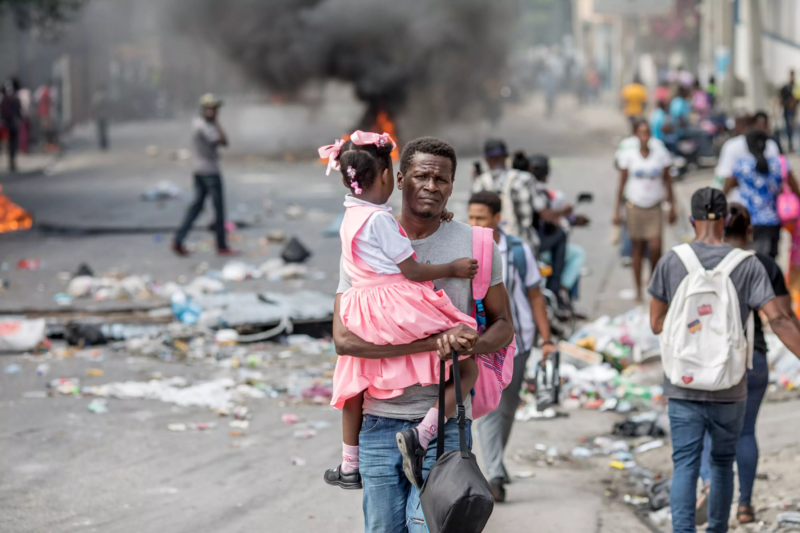
The United Nations has released a distressing report highlighting the dramatic surge in violence and instability in Haiti, painting a grim picture of the nation’s deepening “multidimensional crisis.” UN Secretary-General Antonio Guterres expressed profound concern over the escalating gang violence that is severely impacting Haitian lives, particularly in the capital, Port-au-Prince.
In 2023, Haiti recorded a staggering 4,789 homicides, more than doubling the previous year’s figures, representing a 119.4% increase. This surge in violence is accompanied by a significant rise in kidnappings, which soared by 83%, from 1,359 incidents in 2022 to 2,490 in 2023. The situation has deteriorated notably since the assassination of President Jovenel Moise in 2021, plunging the country into deeper turmoil.
Guterres emphasized the severity of the crisis in Haiti, marked by rampant gang activities, kidnappings, sexual violence, and human rights abuses, with little to no accountability. The dire situation is further exacerbated by a diminishing police force, with over 1,600 officers leaving the service in 2023, and the deaths and injuries of numerous officers.
In response, the UN Security Council approved a multinational mission to bolster Haiti’s overwhelmed police force, with Kenya set to lead. However, this deployment faces delays due to a legal challenge in Kenya, questioning the constitutional basis of the mission. The Kenyan high court is expected to deliver a ruling soon.
Amidst these challenges, Guterres called for urgent measures to strengthen Haiti’s judicial and correctional systems and uphold due process. Ulrika Richardson, the United Nations’ resident coordinator in Haiti, anticipates the deployment of the support force in early 2024.
Haiti’s political landscape remains unstable, with no elections held since 2016 and the presidential office still vacant. Guterres stressed the importance of conducting “credible, participatory and inclusive” elections once the security conditions permit.
The humanitarian situation is dire, with over half the population requiring assistance, including nearly three million children. Gangs control approximately 80% of Port-au-Prince and employ brutal tactics like sequential attacks on police stations and systematic sexual violence to assert dominance over communities.
The UN Security Council is scheduled to discuss the situation in Haiti further, highlighting the urgent need for a comprehensive and coordinated international response to address the country’s multifaceted crisis.



 and then
and then